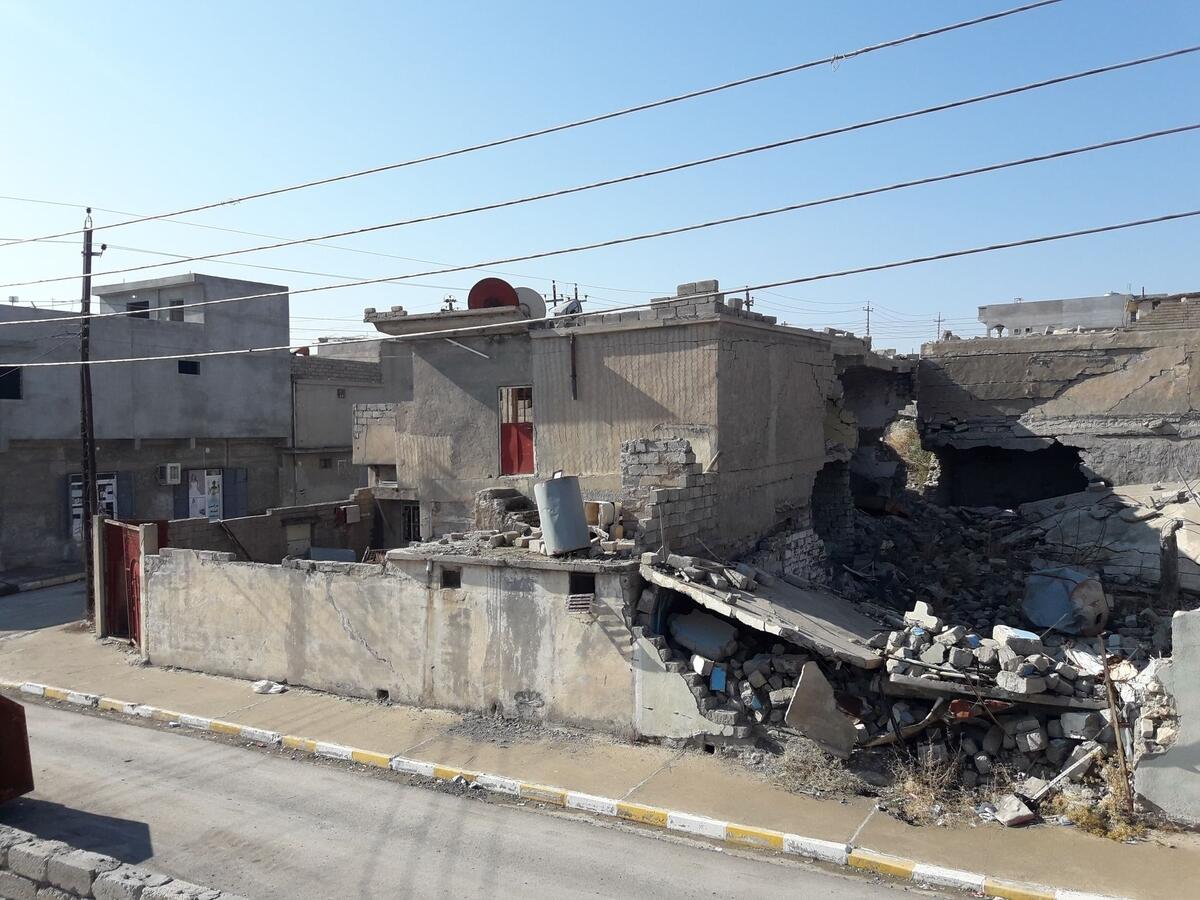Iraqi children living among corpses and unexploded bombs after camps close, charity warns
‘My son came to me with a non-exploded grenade in his hand. He said, ‘Father, what is this?’

Thousands of Iraqi children and their families are living in badly damaged houses among unexploded bombs, dead bodies and rubble after several camps for displaced people were suddenly closed, a charity has said.
Save the Children said parents who had been forced to leave the camps are in urgent need of basic amenities, such as electricity, clean drinking water, food and transport.
The Iraqi government began forcibly closing displacement camps in August 2019 and expects people to return to their areas of origin - but many of those areas were destroyed and remain in pieces.
Nearly six million Iraqis fled their home since 2014, as the war against the Islamic State (IS) group raged.
According to the International Organisation for Migration, around 1.8 million people remain displaced and more than half of the 4.7 million who returned to their areas are living in “severe” conditions.
A 47-year-old father of four, known only as Ali, had returned to Mosul from Yahyawa camp in Kirkuk and told Save the Children the area was still in devastation.
He was quoted as saying: “I brought down a non-exploded bomb from the rooftop of my house. Children were holding bullets but didn’t know what they were.
“My son came to me with a non-exploded grenade in his hand. He said, ‘Father, what is this?’
“People also found a corpse in one of the destroyed houses.”
Ali added that the area they returned to was the last shelter for IS in Ninewa and most of the houses there were destroyed during the conflict.
“Our children are not safe here,” he said. “They need safety, they need awareness about landmines and unexploded bombs, mental health support, toys, winter clothes and food.”
According to the charity, some of the 303 families who were moved out of the Yahyawa camp arrived in Mosul, Eiyadiah and Tal Afar in the Ninewa Governorate, in northern Iraq, only to find there was no safe shelter.
Save the Children volunteers also said families were particularly worried about young girls getting kidnapped after being forced from the camps.
Shahad, a volunteer with Save the Children who worked in the Yahyawa camp before its closure, said: “I wish we didn’t come back here, because our houses were destroyed. It’s too cold and there are no adequate services like drinking water, electricity or cleaning.
“Most of the people refurbish a room for the whole family to live in. Children and their families are in desperate need of fuel and heating to keep them warm during the cold winter. They also need beds and blankets.
“There are too may risks to children’s lives here, such as explosives, rubble, Covid-19, scarcity of food, dead bodies and skulls among the rubble, and the cold winter.”
The charity country director in Iraq, Ishtiaq Manan, said the situation was “deeply concerning” and called on the Iraqi government to provide alternative shelter to families who do not wish to return to their areas of origin.
“Up to 49 per cent of the affected people are children who have lived in difficult camp conditions for over three years, and are now forced to live in places no child should live in: in the midst of debris and among dead bodies.
“This is a desperate situation for thousands of children in the middle of a pandemic, made worse by the looming start of winter.”
The charity is also calling on the international community to work with the Iraqi government to draw up a long-term plan for the closures of the camps in line with international standards..
Join our commenting forum
Join thought-provoking conversations, follow other Independent readers and see their replies
Comments




Bookmark popover
Removed from bookmarks